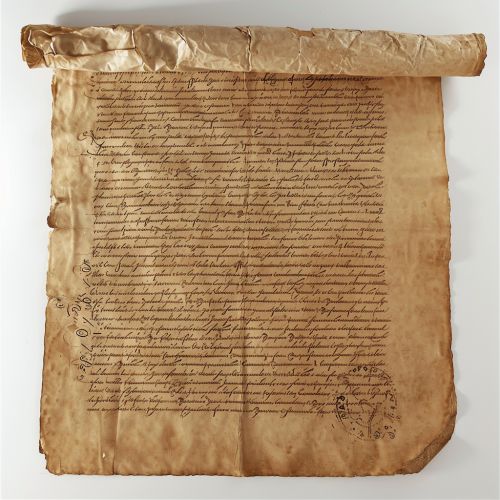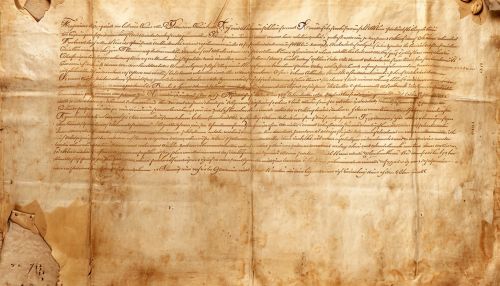Treaty of Verdun
Background
The Treaty of Verdun, signed in August 843, was a significant event in the history of Europe. It marked the end of the civil war between the three sons of Louis the Pious, the son and successor of Charlemagne. The treaty divided the Carolingian Empire into three kingdoms, laying the foundation for the modern nations of France and Germany.


Causes
The primary cause for the Treaty of Verdun was the death of Louis the Pious in 840. His three sons, Lothair I, Louis the German, and Charles the Bald, had been assigned sub-kingdoms during their father's reign, but they disagreed over the succession and the division of the empire. This led to a civil war, known as the Carolingian Civil War, which lasted for three years.
Terms of the Treaty
The Treaty of Verdun divided the Carolingian Empire into three kingdoms. Lothair I, as the eldest son and the co-emperor with Louis the Pious since 817, received the central portion, known as Middle Francia. This included the imperial title and all lands between the North and Mediterranean Seas, which were not already part of East and West Francia.
Louis the German received East Francia, which comprised the area that would later become the High Medieval Kingdom of Germany, the largest component of the Holy Roman Empire. Charles the Bald received West Francia, which would later evolve into the Kingdom of France.
Aftermath
The Treaty of Verdun had significant long-term effects. It ended the idea of a united Europe, which had been envisaged by Charlemagne and his predecessors. The division of the empire also set the stage for the development of feudalism, as local lords gained more power and influence.
The treaty also had a profound impact on the future of Europe. The divisions it established laid the groundwork for the formation of the modern states of France and Germany. The cultural and linguistic differences that had already begun to emerge among the regions of the old Carolingian Empire were further solidified by the treaty's divisions.
Legacy
The Treaty of Verdun is often considered the beginning of the feudal era in Europe. It marked the end of the Carolingian Empire and the beginning of the regional kingdoms that would dominate the continent for the next several centuries.
The treaty also had a lasting impact on the political geography of Europe. The divisions it established between the three Carolingian brothers laid the groundwork for the modern states of France and Germany. The cultural and linguistic differences that had already begun to emerge among the regions of the old Carolingian Empire were further solidified by the treaty's divisions.
